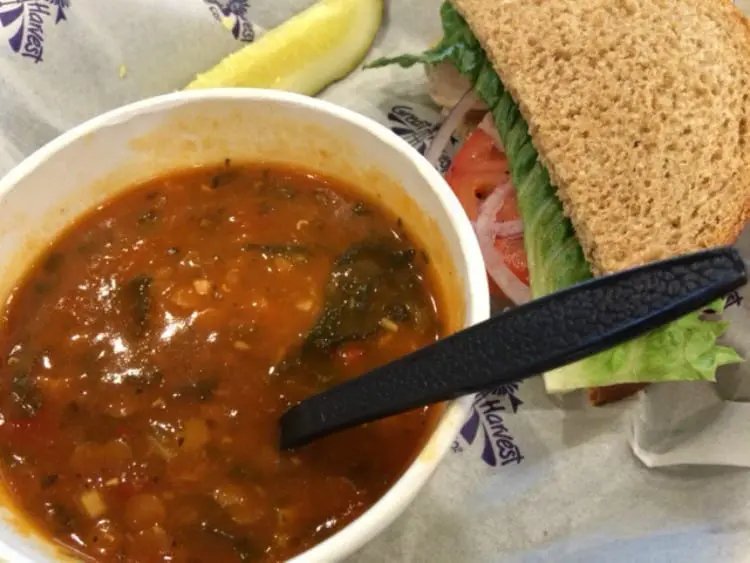Reasons to Learn How to Forage

Restaurants have tried to bring in fresh clientele with various trends over the years. Recently, the word “foraged” has become more common. Establishments will highlight locally foraged ingredients to show their ethical side. So what is foraging, why should you learn how to forage, and why do you need an expert to help you?
What is Foraging?
Foraging is all about finding ingredients for dishes or medicinal purposes from the natural landscape. It is like a wild version of a pick-your-own event. Instead of going to someone’s farm or land to pick berries from cultivated rows, you explore the woods and forests to see what treasures there are. Successful foragers can collect all kinds of berries, mushrooms, plants, and roots. Some will work as a seasonal, local alternative to traditional ingredients while others may work better in teas or other treatments for herbal remedies.
Reasons to Learn How to Forage
1) Finding tasty treats you’ve never seen before.
Buying fruit and vegetables at the supermarket gets bland and repetitive after a while. You get those dull packs of salad leaves, button mushrooms, and the same old stock. The natural larder in forests, hedgerows, and woodlands is much more diverse and interesting. There are hidden delights you’ve overlooked for years. This can allow for interesting garnishes, teas, and other recipes. Over time, you expand your palette and become more confident in pairing ingredients together.
2) Embracing local and seasonal produce
When carried out responsibly, foraging can be a great way to enjoy a greener way of life. Food miles and questionable practices are an issue in the food industry right now. We have produce forced to grow out of season, protected with pesticides and other chemicals, and shipped halfway across the world.
Foraging means you get to savor whatever is in season for that brief window of time. You can appreciate tastes and opportunities more because they are so fleeting. Then, you can plan for the following year and anticipate their arrival. Everything is also within walking distance of your kitchen, so there’s no dent in your carbon footprint.
3) Spending valuable time in nature
Foraging for these local delicacies helps bring us even more in tune with the natural world. If you like the notion of going out and finding ingredients to cook with but aren’t that knowledgeable about zoology, this could change that. You can learn about the animals that feed on these items and their greater role in creating a healthy ecosystem. You can learn to identify birds and their songs as you explore. Over time, you’ll find you have a much greater respect for the landscape and the resources it provides.
4) Improving your physical and mental health
Many items gathered on a foraging trip will have significant health properties. For example, common nettles can become a great source of nutrients when harvested and turned into tea. However, there is also the physical benefit of the exercise that comes with these foraging walks. You can combine foraging with a long nature hike to work on your fitness at the same time. Long walks in nature are also highly beneficial for our mental health. We can take time away from the stress of work and our computer screen and soak in the serenity of a green space. Many find they have as much fun searching for these berries, mushrooms, and other items as they do finding them and cooking with them. If you can do this with close friends or family, it becomes a bonding experience.
Working with Expert Foragers
As wonderful as it sounds to go out alone and start exploring the countryside, it is important to learn these skills from a professional. Expert foraging courses in Scotland are popular with those who want to make the most of what’s available in a safe, effective, and responsible manner. When you learn how to forage with an expert, you get first-hand information about the plants and fungi in a local area. You learn vital details about when different species are at their best, where to look for them, and how to identify them.
Some plants may be available all year round while others have nutritious berries for just a few weeks in the autumn. Some may thrive in damper areas off the beaten track that you wouldn’t see on standard hiking trails. Course providers may also offer a chance to cook with the ingredients found and further nutritional advice.
These identification skills are especially important when dealing with mushrooms and berries that could be dangerous. There are plenty of delicious wild mushrooms in the UK that are perfectly safe to eat, but also plenty more that you don’t want to go anywhere near. Some will warn predators to stay away with their coloration, but others are much more inconspicuous. An expert guide should help you learn what to make the most of and what to completely stay away from.
The best foraging guide can also express a level of respect for nature that first-time, self-taught foragers often overlook. Nature’s larder isn’t ours to misuse and deplete. We don’t want other species to miss out on vital food reserves because we were too selfish and stripped the area bare. For example, if you were to see a hedgerow full of blackberries, would you fill containers with every berry you could carry or take your fair share?
Appreciate Nature from a New Perspective with Expert Foraging Skills
What is foraging? At its heart, foraging is so much more than a way to find new ingredients and create a buzz around a locally sourced menu. Those who fully embrace foraging can find they build a new connection with the natural world and enjoy the process as much as the food gathered. It is a chance to relax in nature, show gratitude for the diverse species out there, and dive into a more beneficial lifestyle. Just make sure you learn all those crucial foraging skills from an expert before exploring alone in the woods.









